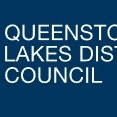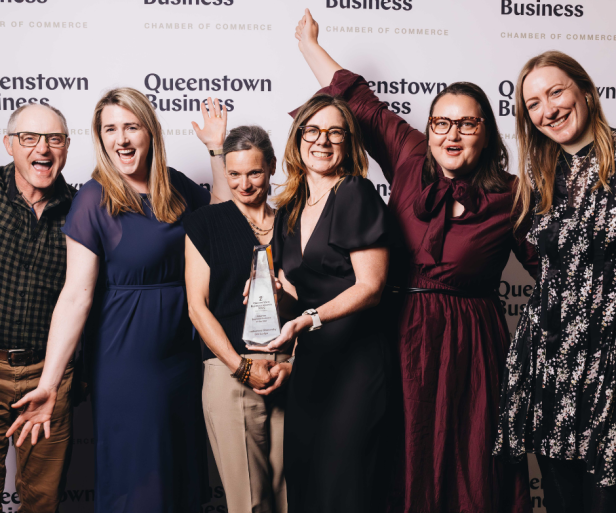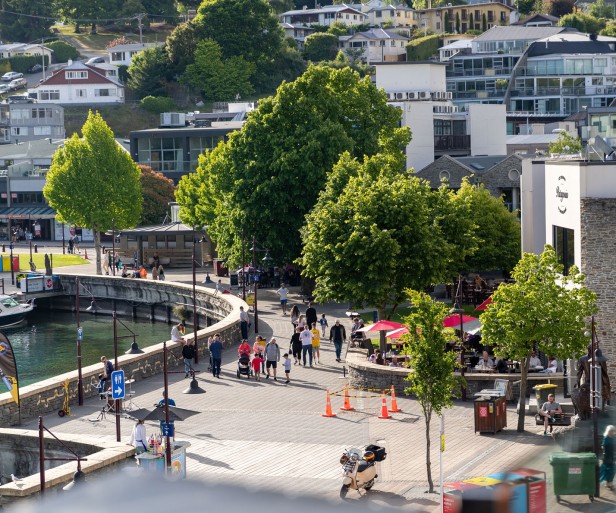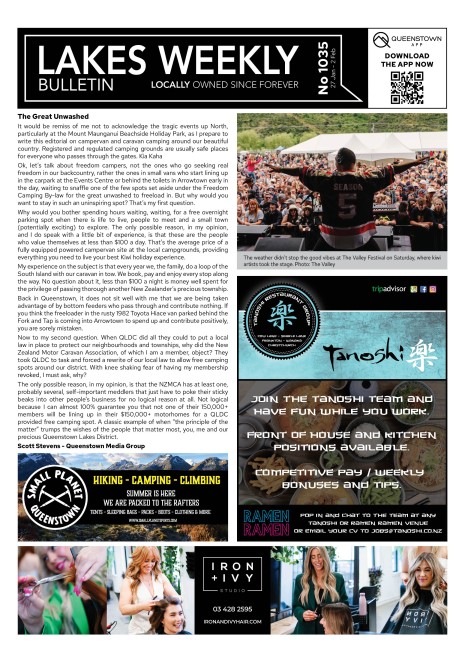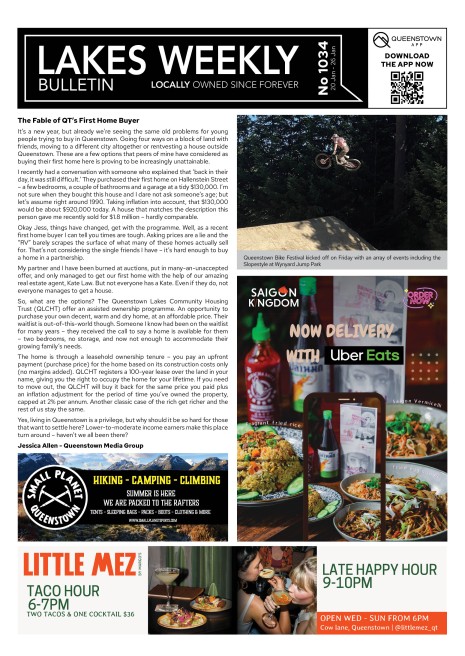Supporting sustainable communities
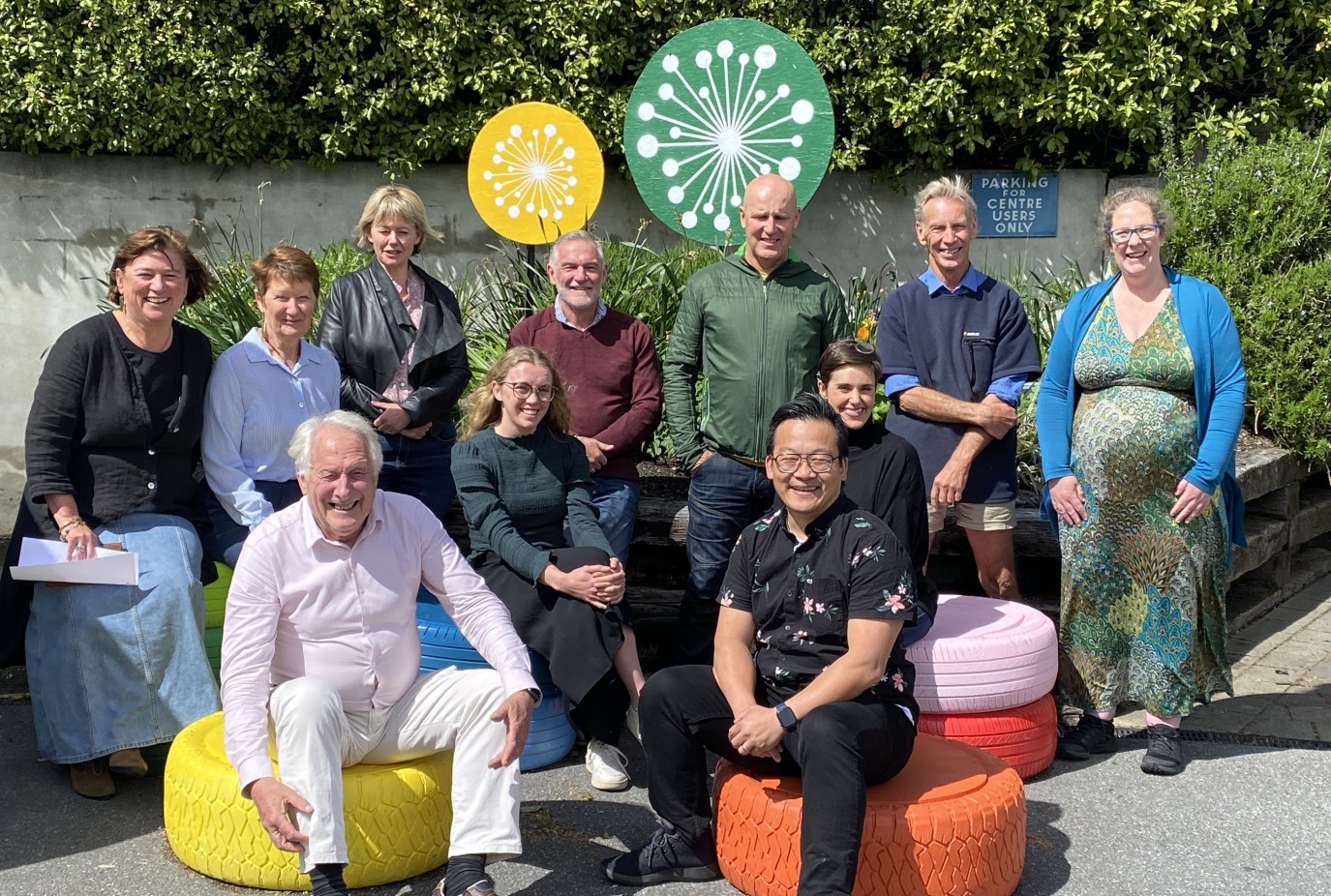
On 27 June, 2019, Queenstown Lakes District Council declared a climate and ecological emergency in response to an intergeneration call to action from our community. This declaration spurred the adoption of the district’s first Climate Action Plan, to help guide our district toward a more sustainable and environmentally responsible future.
At the heart of Council’s climate efforts is the Climate Reference Group (CRG), an independent, multidisciplinary advisory body composed of Kāi Tahu representatives, community leaders and a range of climate experts. The CRG advise Council on actions related to emissions mitigation, climate change adaptation and biodiversity restoration. Their expertise is invaluable, and the collaboration between Council and the CRG reflects our commitment to community-driven environmental leadership.
CRG chairperson, Dr Leslie Van Gelder, shared her thoughts on Council’s role in supporting sustainable communities.
“Council can help by creating a joined-up approach that connects the efforts of all partner organisations in the pursuit of improved community and environmental outcomes.
“This collaborative approach is particularly important for both the spatial planning of the design of our future communities and for the efforts that are being undertaken right now to collaboratively create better conditions for our communities to thrive.”
“The unlocking of these opportunities can be incredibly complex, so we have to learn to trust each other more, not less, as no one institution holds the single source of knowledge to create this future. The road to trust is through shared commitment, everyone owning their part in the process and a focus on providing the space for creativity to thrive.”
Dr Van Gelder points out that Council can’t do everything itself, but it can be a key enabler and barrier-remover, freeing the way for community and businesses to work toward the goal of a sustainable future.
And there is a clear mandate from our community on the importance of this goal.
According to the latest Quality of Life Survey, 78% of people living in Queenstown Lakes are either concerned (35%) or very concerned (45%) about the impacts of climate change on our district. Respondents expressed a desire for more action from the Council in areas like reducing carbon emissions and enhancing local resilience to climate impacts. This sentiment reflects the growing awareness and concern regarding the effects of climate change on our communities and on the natural ecosystems of our district.
In response to these community expectations Council has been busy delivering the actions within the Climate and Biodiversity Plan 2022-2025 (CBP). As of September 2024, 23% of the plan’s actions have been completed and 72% are in progress. If you’re interested, we update our ongoing progress on these actions at climateaction.qldc.govt.nz.
A key action that has been fulfilled is Council’s commitment to increasing funding for local organisations through the Community Fund 2024-2027. Over $1.7 million in financial support was allocated to local organisations through the latest funding round, with a boost of $200,000 coming from the Climate and Biodiversity Plan budget. This funding will help support a diverse range of organisations focused on biodiversity, food resilience, zero waste, and sustainable practices, such as Te Tapu o Tāne, KiwiHarvest, WAI Wānaka, and the Whakatipu Reforestation Trust, all of whom play pivotal roles in fostering sustainability in the region.
Council has also recently launched its draft Welcoming Plan which is aimed at fostering inclusivity and building connections among residents. As part of Welcoming Week, a series of events was held in September to highlight the importance of creating welcoming and inclusive communities that are also sustainable and climate conscious.
Another key area of focus for Council is on supporting community preparedness for the severe weather events associated with climate change. Council partners with Emergency Management Otago to support a growing network of Community Response Groups across the district. These groups are formed by passionate local volunteers who are committed to ensuring that their communities are ready and prepared for emergency events. Climate change will likely increase the frequency of severe weather events so we’ve committed over $40,000 in funding equipment to ensure these groups can activate Community Emergency Hubs when needed.
Council is also focussed on the potential impact that a changing climate will have on our local food system. We’ve partnered with WAO Wānaka on the Queenstown Lakes Food Resilience Project, which seeks to improve our local food system’s resilience to disruptive shocks and sustained stresses. This important project aims to address key challenges associated with climate change and food security by encouraging community involvement in creating a robust, self-sustaining food network.
As Council moves forward with its climate, biodiversity and sustainability efforts, the focus remains clear: fostering collaboration, supporting innovative solutions, and building a resilient, sustainable, and inclusive community that can thrive for generations to come.

